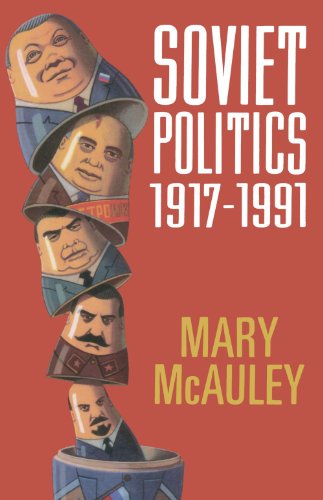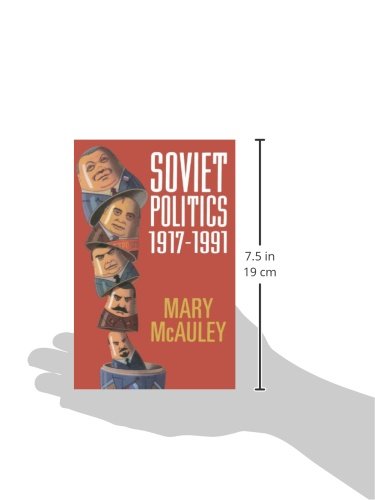Customer Services
Copyright © 2025 Desertcart Holdings Limited



Full description not available
K**R
Excellent overview of Soviet Politics
Excellent overview of Soviet politics.
K**G
A nice summary of Soviet Politics.
One of my friends saw me reading this book, and stated that such a short book could not adequately cover Soviet politics. This book is the exception and McAuley points out the main themes of the politics of the Soviet Union. For those who want both a basic and advanced educaion on the Soviet political system, this is a nice book. McAuley breaks the Soviet period down into eight chapters and covers the stages of Soviet politics. The following were the basic stages: Revolution, State Building, Industrialization and Collectivization, Terror, Khrushchev and Party Rule, the Administrative-Command System under Brezhnev, and Perestroika and the End of Party Rule.I found this book a nice analysis of the Soviet Union's politics. It covered in few pages what other authors would convey in 500 pages. This is a nice concise analysis of the subject.
M**K
Short on words--long on content
As Raygun pointed out...impossible to find a more concise history of the Soviet Period. Short on words long on content. There is a reason this book is still commanding $40+ new. A must for anyone seeking to understand the Soviet system.
R**N
The Gettysburg Address of Soviet history.
This book is incredibly dense, thoughtful, and to the point. If you can find a more succinct and concise history of the Soviet Union, I'd like to see it.
J**K
Excellent
I thoroughly recommend this. It manages to give a clear and insightful analysis of the politics of the Soviet Union in the given time period. Because it's a determinist view, it looks at broad factors - which groups held the powers of authority and coercion, the nature of Marxist/communist ideology - and hardly at the individual leaders. Lenin died with nary a whisper, and Stalin was rarely mentioned even throughout the chapter on the great purges - the focus, rather, was on the common people and the idea of all rules breaking down, such that there were no longer logical reasons for who was caught and denounced.It introduces, but doesn't go into detail about, a variety of viewpoints from various schools of thought - the West vs. contemporary Russian thinkers vs. past Russian politicians (Trotsky, Bukharin) - and highlights the fundamental problems with the Russian communist political ideology.How could a vanguard party guide and lead without controlling the apparatus? How could such a party maintain its purity if it was supposed to embrace all social groups? And if they believed, as Lenin and Krushchev did, that there was one common aim and only one right way of moving forward - who was to decide what it was? Also, if there was only one right way, by definition all opposition had to be wrong - and therefore unnecessary; which resulted in a dangerous lack of checks-and-balances within the system.
Trustpilot
5 days ago
1 month ago
3 weeks ago
1 week ago